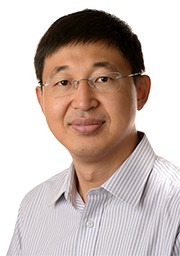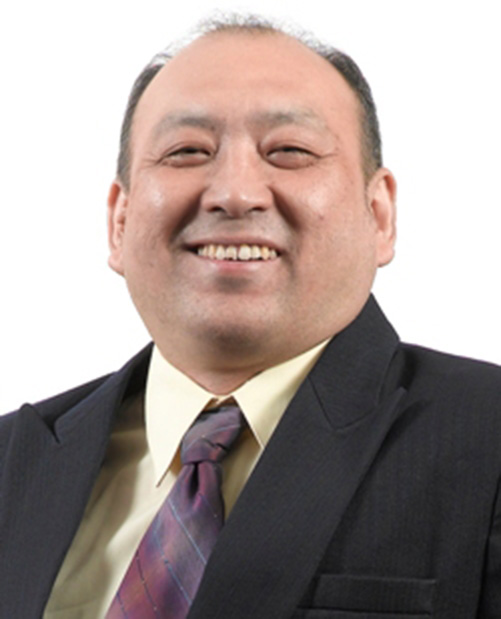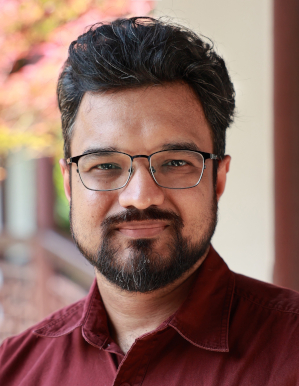Speech Title: Intelligent Sensing: Challenges and Opportunities
![]()
Prof. Tao Gu
IEEE Fellow, AAIA Fellow, ACM Distinguished Member
Macquarie University, Australia
Bio: Tao Gu is currently a Professor in the Department of Computing at Macquarie University in Sydney. He holds a Ph.D. in Computer Science from the National University of Singapore, an M.Sc. in Electrical and Electronic Engineering from Nanyang Technological University, and a B.Eng. in Automatic Control from Huazhong University of Science and Technology.The long-term objective of his research is to explore innovative methods for sensing and connecting the physical world, while integrating AI intelligence to enable the development of new applications. His current research focuses on areas such as the Internet of Things, Ubiquitous Computing, Mobile Computing, Embedded AI, Wireless Sensor Networks, and Big Data Analytics. Further details about specific research projects can be found on the Projects page. His work is regularly published in leading journals and conferences, including ACM/IEEE ToN, IEEE JSAC, IEEE TMC, SenSys, UbiComp, IPSN, and INFOCOM.
Abstract:
In a rapidly evolving digital landscape, the paradigm of intelligent sensing has emerged as a transformative technology, enabling us to perceive and interact with the world around us in unprecedented ways. This talk will delve into the multifaceted realm of intelligent sensing technologies, offering a comprehensive exploration of their diverse applications and profound impact on our lives. I will begin with Millimeter Wave Sensing, discovering how these highfrequency waves are revolutionizing our ability to sense, map, and analyze our surroundings with remarkable precision. Next, I will dive into WiFi Sensing, where ubiquitous WiFi signals become a powerful tool for understanding human behavior, occupancy patterns, and health monitoring. Acoustic Sensing will unveil the fascinating world of sound-based sensing. Explore how audio signals, beyond mere communication, are harnessed to detect anomalies, monitor structural integrity, and enhance our understanding of natural environments.

Prof. Yonghui Li
IEEE Fellow
The University of Sydney, Australia
Bio: Yonghui Li (Fellow, IEEE) received the Ph.D. degree from the Beijing University of Aeronautics and Astronautics, Beijing, China, in November 2002.,Since 2003, he has been with the Centre of Excellence in Telecommunications, The University of Sydney, Sydney, NSW, Australia, where he is currently a Professor and the Director of the Wireless Engineering Laboratory, School of Electrical and Computer Engineering. His current research interests are in the area of wireless communications, with a particular focus on MIMO, millimeter-wave communications, machine-to-machine communications, coding techniques, and cooperative communications. He holds a number of patents granted and pending in these fields.,Prof. Li is the recipient of the Australian Queen Elizabeth II Fellowship in 2008 and the Australian Future Fellowship in 2012. He received the Best Paper Awards from IEEE International Conference on Communications 2014, IEEE PIRMC 2017, and IEEE Wireless Days Conferences 2014. He is listed as a Clarivate Highly Cited Researcher. He was an Editor of IEEE Transactions on Communications and IEEE Transactions on Vehicle Technology. He also served as a Guest Editor for several IEEE journals, such as IEEE Journal on Selected Areas in Communications, IEEE Communications Magazine, and IEEE Internet of Things Journal.
Speech Title: Beyond 5G for Industrial IoT
Abstract:
Connected smart objects, platforms and environments have been identified as the next big technology development, enabling significant society changes and economic growth. The entire physical world will be connected to the Internet, referred to as Internet of Things (IoT). The intelligent IoT network for automatic interaction and processing between objects and environments will become an inherent part of areas such as electricity, transportation, industrial control, utilities management, healthcare, water resources management and mining. Wireless networks are one of the key enabling technologies of the IoT. They are likely to be universally used for last mile connectivity due to their flexibility, scalability and cost effectiveness. The attributes and traffic models of IoT networks are essentially different from those of conventional communication systems, which are designed to transmit voice, data and multimedia. IoT access networks face many unique challenges that cannot be addressed by existing network protocols; these include support for a truly massive number of devices, the transmission of huge volumes of data burst in large-scale networks over limited bandwidth, and the ability to accommodate diverse traffic patterns and quality of service (QoS) requirements. Some IoT applications have much stringent latency and reliability requirements which cannot be accommodated by existing wireless networks. Addressing these challenges requires the development of new wireless access technologies, underlying network protocols, signal processing techniques and security protocols. In this talk, I will present the IoT network development, architecture, key challenges, requirements, potential solutions and recent research progress in this area, particularly in 5G and beyond 5G.

Prof. Maode MA
IET Fellow
Qatar University, Qatar
Bio: Prof. Maode Ma, a Fellow of IET, received his Ph.D. degree from the Department of Computer Science at the Hong Kong University of Science and Technology in 1999. Now, Prof. Ma is a Research Professor in the College of Engineering at Qatar University in Qatar. Before joining Qatar University, he has been a faculty member at Nanyang Technological University in Singapore for over 20 years. He has extensive research interests including network security and wireless networking. He has led 26 research projects funded by government, industry, military, and universities in various countries. He has supervised 25 research students to get their Ph. D degrees. He has been a conference chair, technical symposium chair, tutorial chair, publication chair, publicity chair, and session chair for over 100 international conferences. He has been a member of the technical program committees for more than 200 international conferences. Prof. Ma has more than 500 international academic publications including over 250 journal papers and about 250 conference papers. He has edited a few technical books and produced over 28 book chapters. His publication has received over 10,000 citations in Google Scholar. He has delivered over 90 keynote speeches and 10 tutorials at various international conferences. Prof. Ma currently serves as the Editor-in-Chief of the International Journal of Computer and Communication Engineering and the Journal of Communications. He also serves as a Senior Editor for IEEE Communications Surveys and Tutorials, and an Associate Editor for the International Journal of Wireless Communications and Mobile Computing and International Journal of Communication Systems. Prof. Ma is a senior member of the IEEE Communication Society and a member of ACM. He is now the Chair of the ACM, Singapore Chapter. He has been serving as an IEEE Communication Society Distinguished Lecturer from 2013 to 2016 and from 2023 to 2024.
Speech Title: Batch Message Authentication with Edge Server Supports in IIoT
Abstract:
Within the domain of the Industrial Internet of Things (IIoT), as showcased by smart factories, resource-constrained smart devices generate large amounts of privacy-sensitive data during operation, which enters vulnerable networks. When malicious entities within the network compromise this data, it can result in operational disruption and even incapacitate the entire IIoT ecosystem. For the seamless operation of intelligent production, data recipients must authenticate the incoming data before use. Traditional message authentication methods in the IIoT context often authenticate each message. This approach leads to repetitive processing and added computational costs. Addressing this issue and fortifying data security among smart devices, we've introduced an innovative batch authentication technique anchored in edge computing principles. This method incorporates a robust batch message authentication algorithm and capitalizes on the strengths of edge servers for smart device verification. The proposed protocol not only markedly alleviates the computational load on smart devices but also enhances the efficiency and validity of message verification.

Prof. Mithun Mukherjee
Nanjing University of Information Science and Technology, China
Bio: Mithun Mukherjee is a university-appointed Professor with the School of Artificial Intelligence, Nanjing University of Information Science and Technology, Nanjing, China. He was a specially assigned researcher and assistant professor with the Guangdong Provincial Key Laboratory of Petrochemical Equipment Fault Diagnosis, Guangdong University of Petrochemical Technology, Maoming, China, from 2015 to 2020. His research interests center around the Internet of Things, mobile edge computing, Tactile Internet, and ultra-reliable low-latency communications. He has (co)authored more than 120 publications in peer-reviewed international transactions/journals and conferences. He has two highly cited ESI papers with Google Scholar citation 2500+, h index 18 and I10 index 34. He was listed in Stanford University's 2020 top 2% of scientists in the world (top 0.5% in CS/network). He has one granted Chinese patent. Dr. Mukherjee was a recipient of the 2016 EAI WICON, the 2017 IEEE SigTelCom, the 2018 IEEE Systems Journal, and the 2018 IEEE ANTS Best Paper Award. He has been a guest editor for IEEE Internet of Things Journal, IEEE Transactions on Industrial Informatics, ACM/Springer Mobile Networks and Applications, and Sensors. He is a regular reviewer/lead guest editor for many prestigious journals and conferences, serves as the TPC member/chair for various conferences, and organized many special sections/workshops in prestigious international conferences. He completed his Ph.D. from the Indian Institute of Technology Patna, Patna, India, in 2015. He is a senior member of IEEE and a member of CCF.
